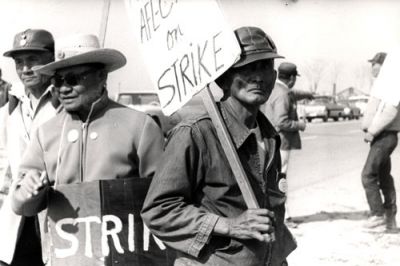Environmental Law and the Two-Year Law School
The NY Times reports that Obama has endorsed the idea of two-year law schools:
On Friday, he questioned the utility of a third year of classes and suggested that students use their final two semesters to gain work experience. “In the first two years, young people are learning in the classroom,” Mr. Obama said. “The third year, they’d be better off clerking or practicing in a firm even if they weren’t getting paid that much, but that step alone would reduce the costs for the student.”
It’s easy to imagine lots of ways that law firms and would-be lawyers would respond to this change; hard to know which ones will turn out or whether students would end up better off. Part of me would like this to happen just because I’m curious about how it would play out.
One things that does seem clear is that a two-year law school wouldn’t leave any time for specialized courses like environmental law that aren’t on the bar exam. It would also leave no time to participate in law school’s environmental law clinics or environmental law reviews. (Or for corporate tax or intellectual property, for that matter). To the extent that education in environmental law is valuable to students, another mechanism would be needed: maybe a master’s degree program, maybe just very extensive Continuing Legal Education programs from private companies.
Reader Comments
4 Replies to “Environmental Law and the Two-Year Law School”
Comments are closed.







Another alternative would be to encourage the first year of law school be counted as the 4th year of undergraduate. High quality students could be admitted to the 3 years of law school at the end of junior year thus saving one year of college. I had a colleague do this 40 years ago at Notre Dame. This is allowed at the Virginia/ Maryland Veterinarian School. Admission for the best at the end of 3 years. Upon completion of one year of Law school, the student could receive their undergraduate degree.
There is some truth to the old adage that they scare you the first year, work you to death the second and bore you the third year. But that is a reason to drop the third year. Cutting one year off under graduate and creating better practice opportunities in the third year could reduce cost and improve the education for the practice of law. During my third year, I worked in a county court as a bailiff/ clerk. It was a great part of my education into the practice of law.
I teach at the under graduate level. At least half of the would be law students are ready at the end of their junior year to attend law school…aptitude, maturity and skills. The other half need that extra year.
While I agree that a two-year degree would impact the ability of students to take specialized courses such as enviornmental law, I think it’s a bit of an overstatement to say that cutting out the third year wouldn’t leave “any” time for such coursework, law review participation, or clinic work. The vast majority of truly necessary bar-review coursework takes place in the first year (perhaps with the exception of evidence), leaving second year as a time to focus almost exclusively on a specialty. Certainly, at Berkeley there are a wealth of opportunities to fill a third year as well, but those seemed more optional than necessary. I could also see a hybrid third year — where working takes the primary role, but students have an option of taking a few additional selective specialty classes on the side.
I do see a two-year program being more of a problem for students who arrive at law school unclear of their speciality, or for students who realize part way through that they’d prefer to take another track. Frankly though I think we should be doing a better job of making sure students have answered those questions before they get to law school, rather than forcing everyone to pay for an extra year so they have time to figure it out.
I like the idea…or a combination idea like that described by L. Leon Geyer. Remember that Abraham Lincoln was self-taught in book knowledge and then the real learning happened through a real mentor. The use of mentorship or learning on the job is still customary in civil law countries (as opposed to common law like we adopted in the U.S.). Law has become a big treadmill designed for making money on the backs of students and then nickel you to death once you “graduate.” The infra-structure industry created by law schools and every other leech along the way has become too big and for the most part, plays no serious role in checks and balances!
Vermont Law School has just begun offering a 2 year JD, or, as they are calling it, an Accelerated JD (AJD). As the top-ranked environmental law school, they’ve solved the specialization problem by requiring the students to start the program the summer before the traditional 1Ls arrive and to stay during the summer between the first and second year. This allows them to get certain courses out of the way–allowing time for specialization during the semester–and to take specialized courses exclusively during the second summer.
In the bigger picture though, the AJD only solves one of the two Problems that the President identified. The AJD does reduce the costs of law school by 1/3, but it also takes away summer of experience, so a new lawyer leaves school with an extra year of time to gain experience, but 20 fewer weeks of summer experience than the traditional law student.